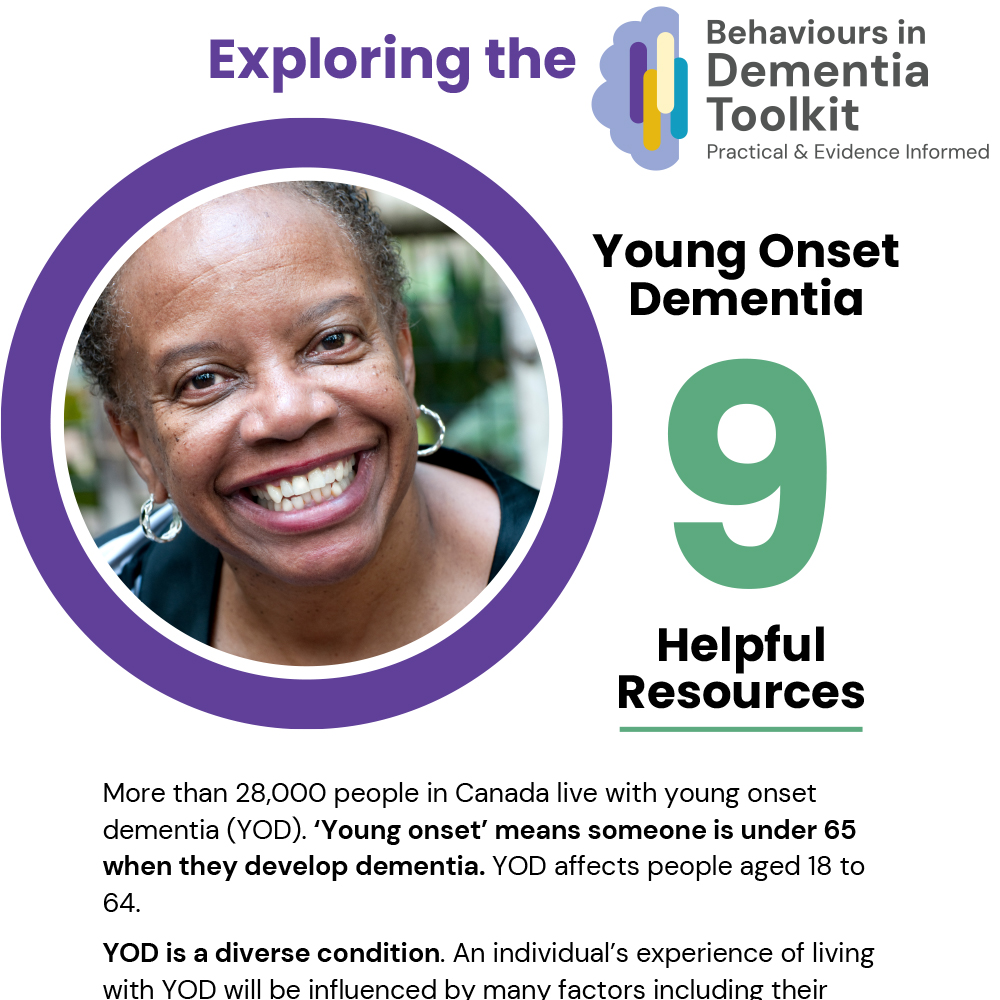BPSD – Older Adults and Care Partners
Clinical Guidelines
Discover the guidelines on Behavioural and Psychological Symptoms of Dementia (BPSD).
For Health Care Professionals
Find clinical tools and resources to support your patients or clients.
With support, people with dementia can lead active and fulfilling lives.
Dementia is a chronic brain (or neurocognitive) disorder that causes changes in a person’s memory, thinking, moods and behaviours. These changes often start small and worsen over time due to ongoing damage happening within the brain.
Key Facts:

Do you support someone experiencing changes in mood or behaviour related to dementia?
The Behaviours in Dementia Toolkit is a brand-new online library of over 300 free, practical resources that can help you better understand and compassionately respond to dementia-related changes in mood or behaviour.
Discover Our Resources
Not sure where to begin?

Download our brochure to learn more about the Behavioural and Psychological Symptoms of Dementia (BPSD) and share it with your colleagues, friends and family.
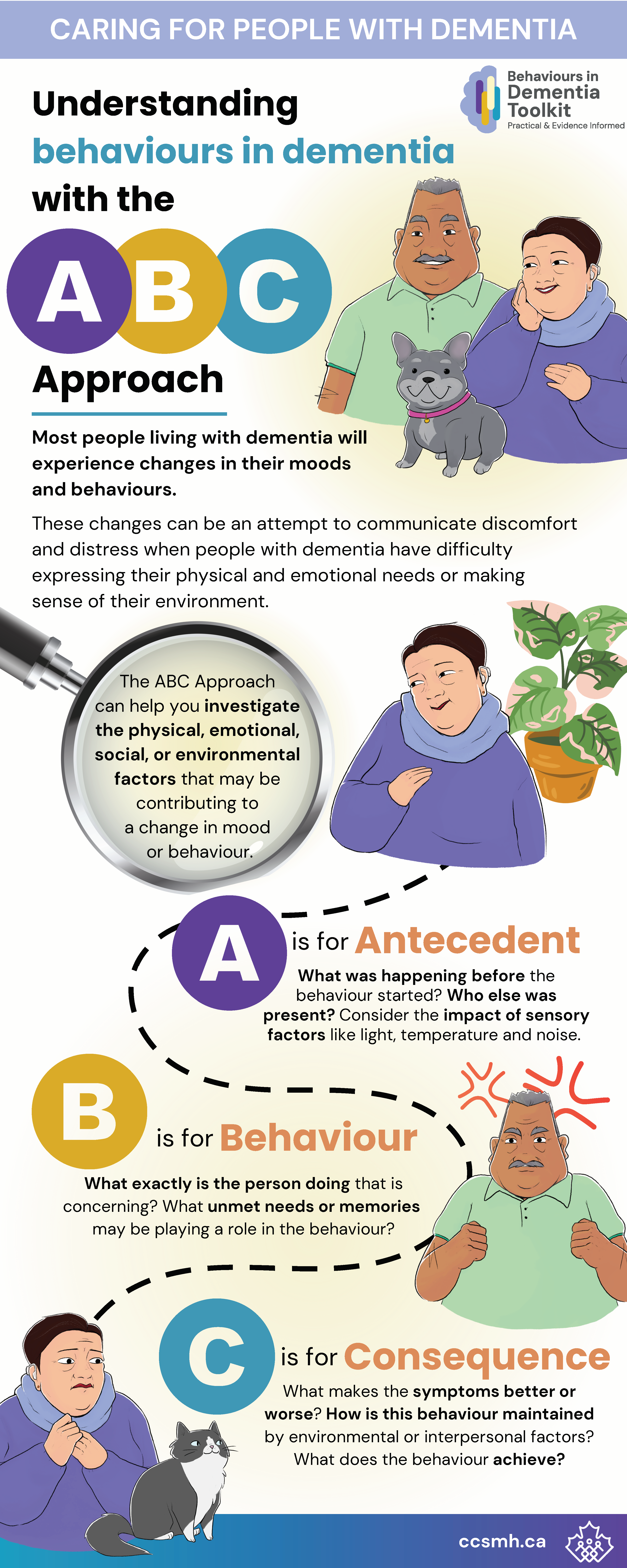
Download this infographic to better understand the behaviours in dementia by using the ABC Approach.

Discover key takeaways presented in the clinical guidelines
Would you like to know more about key information presented in the Canadian clinical guidelines for behavioural and psychological symptoms of dementia? Print this infosheet to have the information on hand during your next visit with a health care provider.
Are you a care partner?
It's important to take good care of yourself as a care partner too. Explore how to take care of your own mental health and wellbeing.
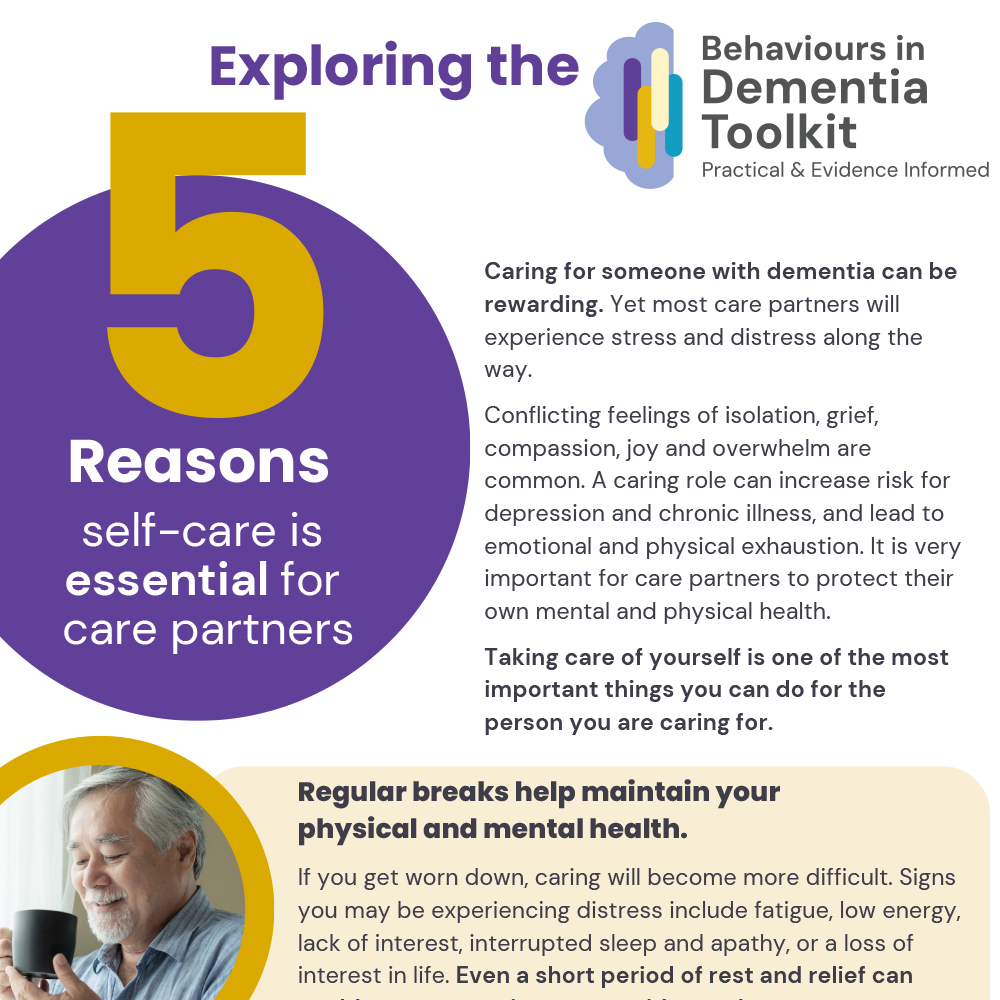
Explore the 5 reasons why self-care is essential for caregivers of people living with dementia.
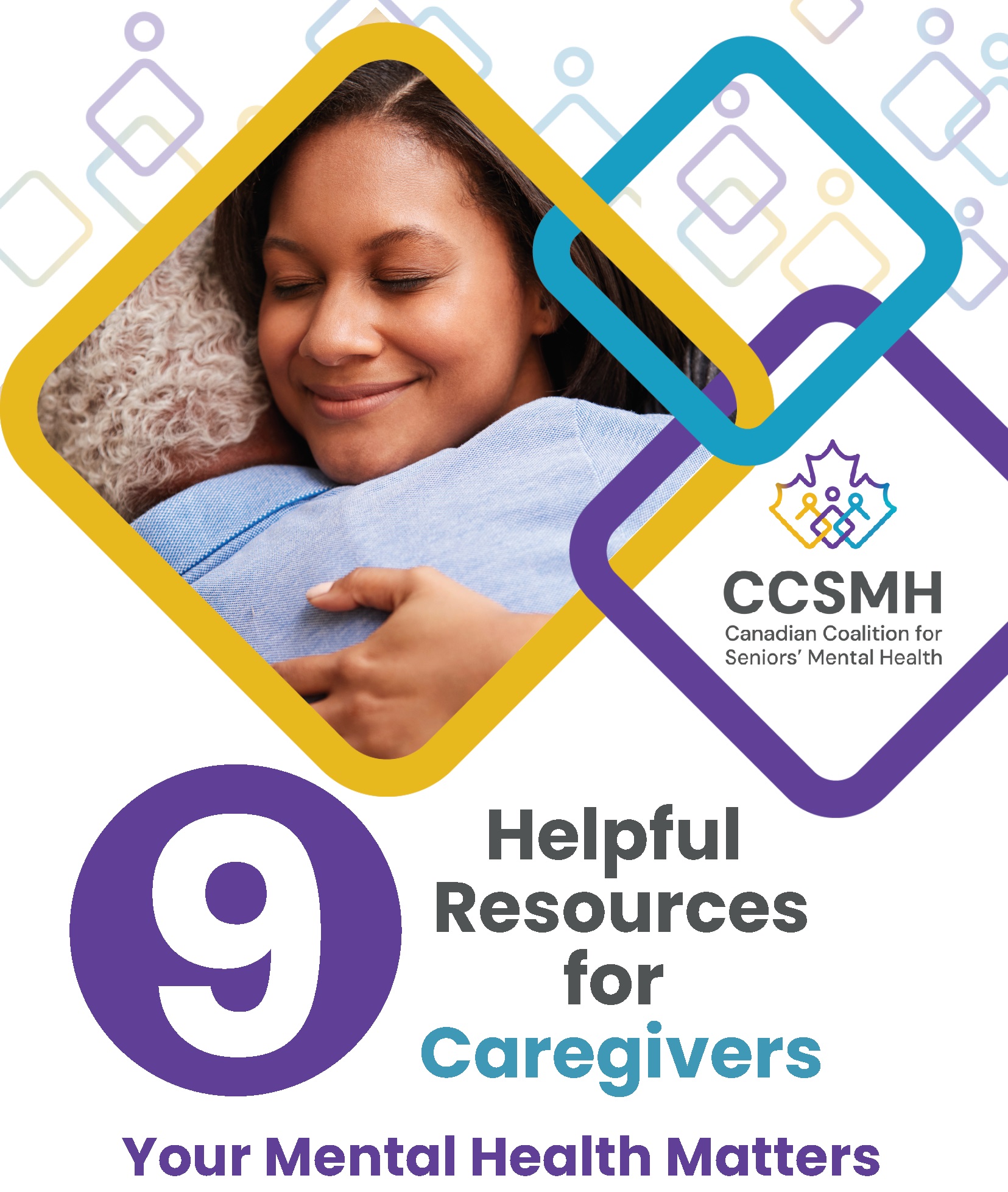
Find helpful resources for care partners in this info-sheet.
Discover additional resources to support you in your care partner role
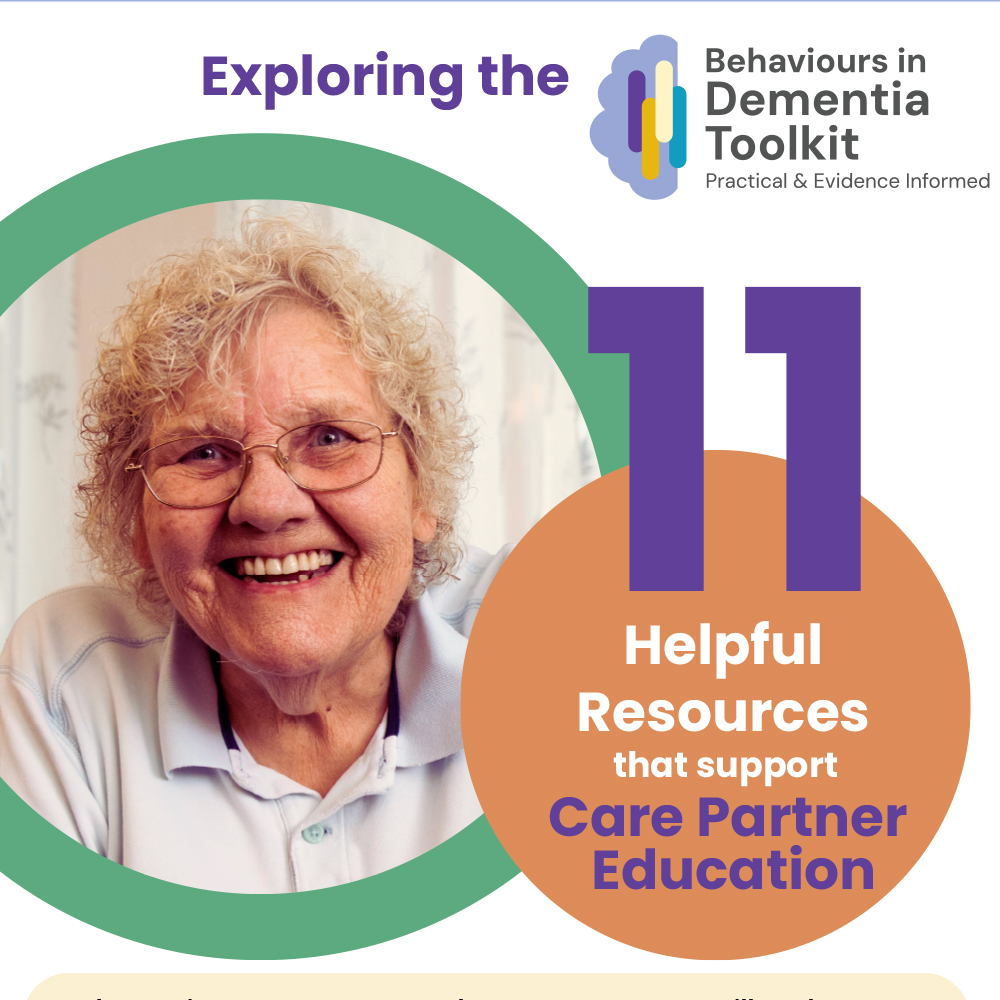
Helpful Resources that Support Care Partner Education
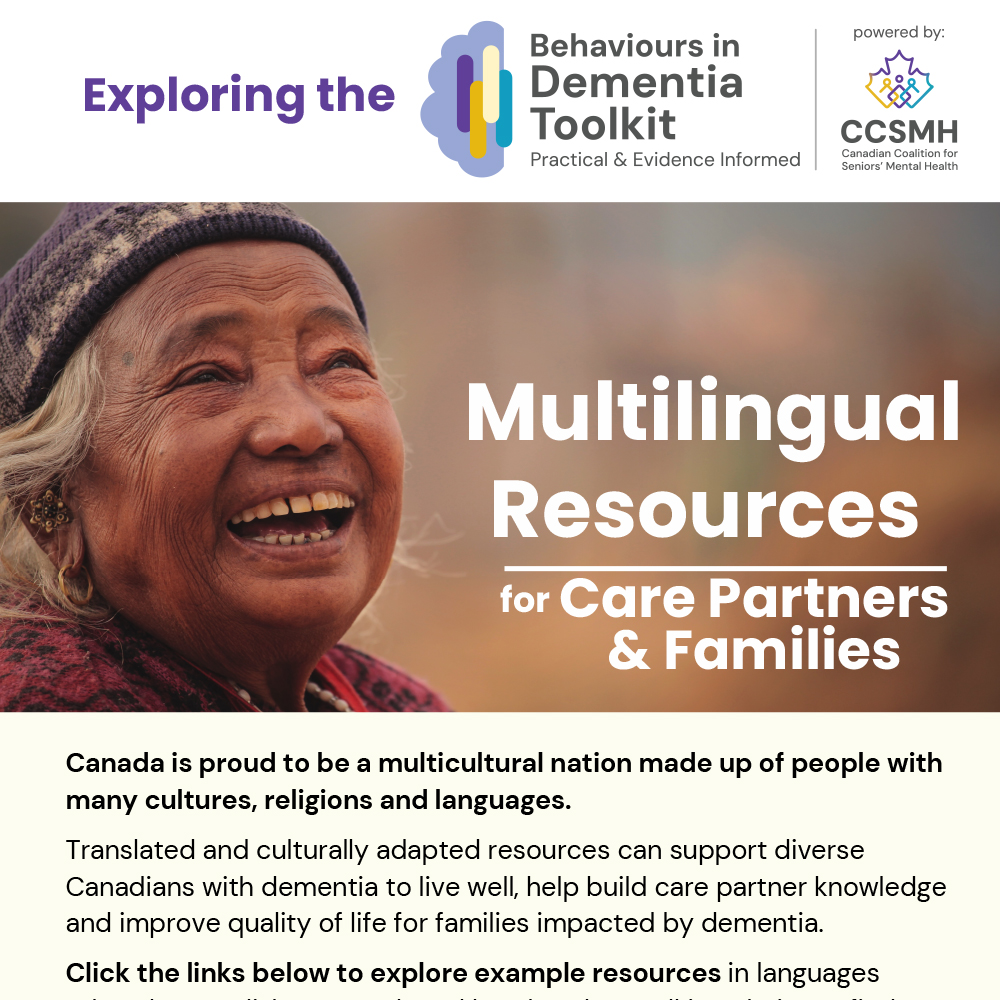
Multilingual Resources for Care Partners & Families
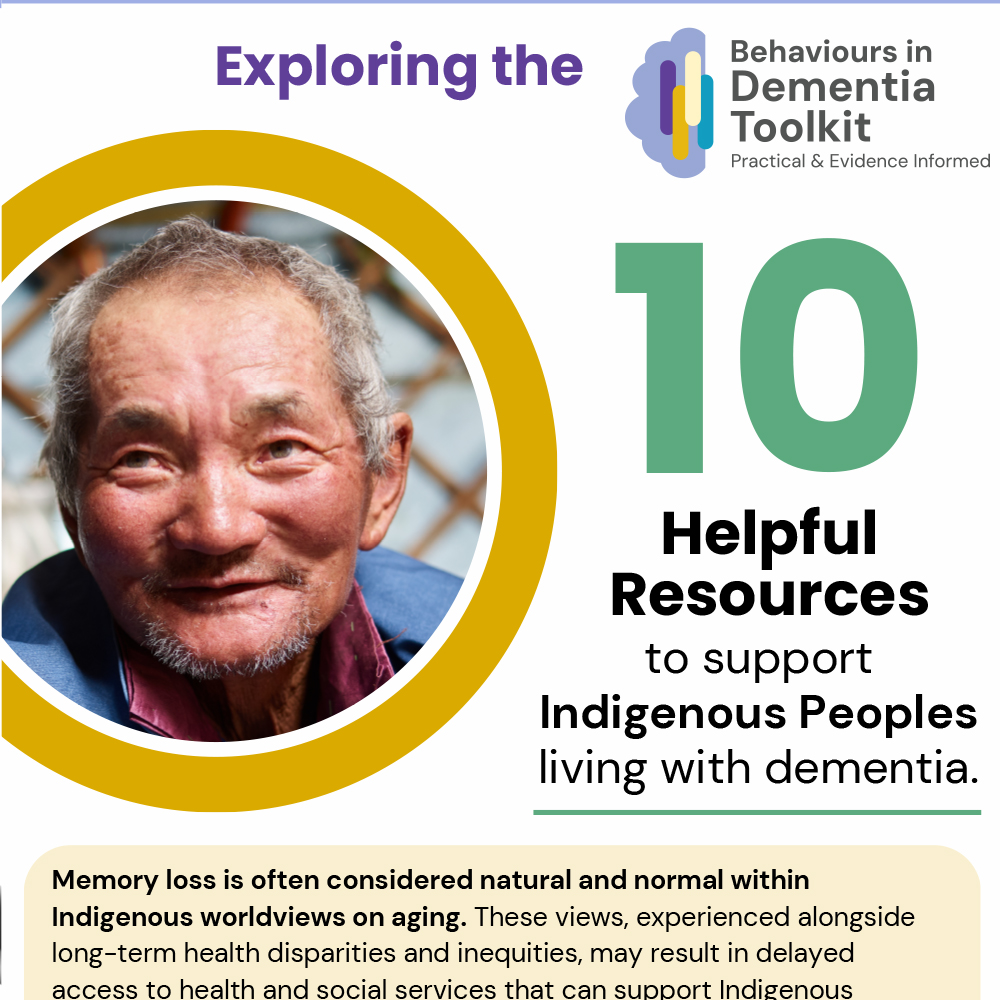
Resources to Support Indigenous Peoples with Dementia

Resources for Care Providers of 2SLGBTQIA+ People Living with Dementia
Learn more about the different types of dementia
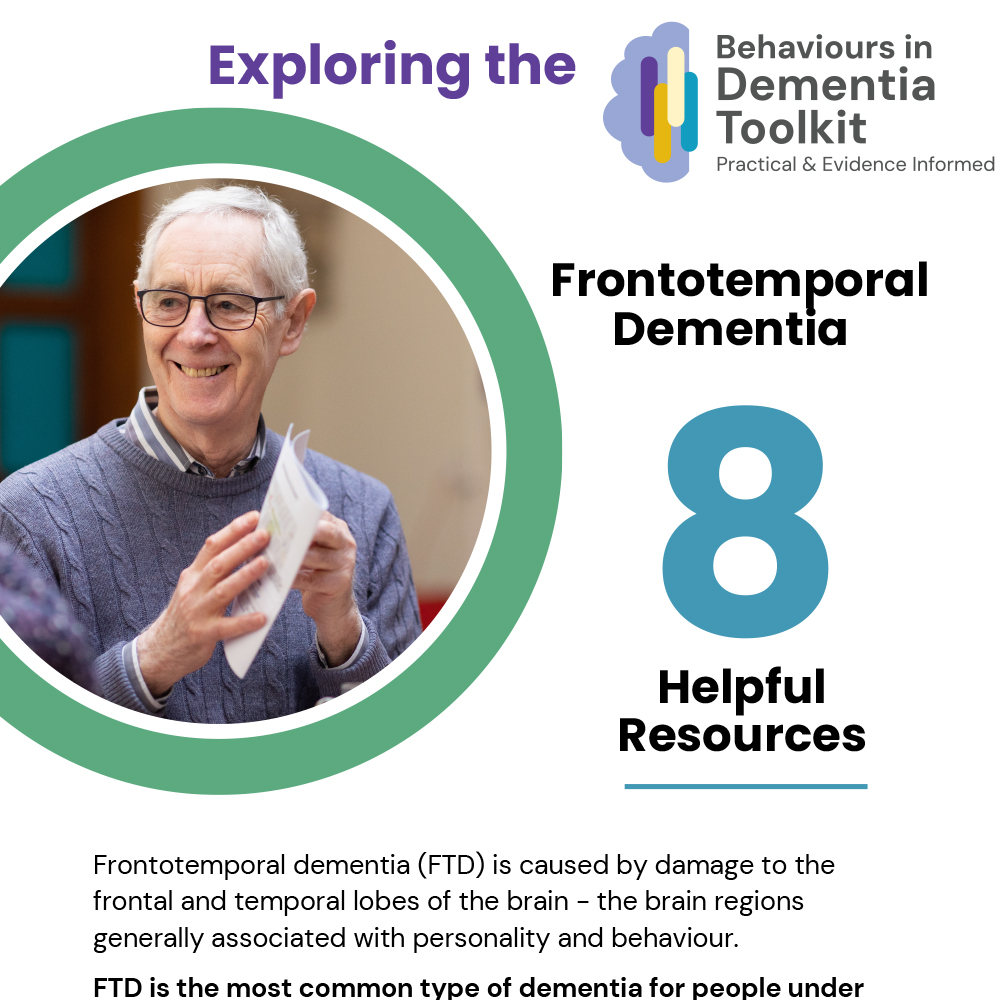
Helpful Resources to Support Frontotemporal Dementia

Helpful Resources to Support Alzheimer's Disease
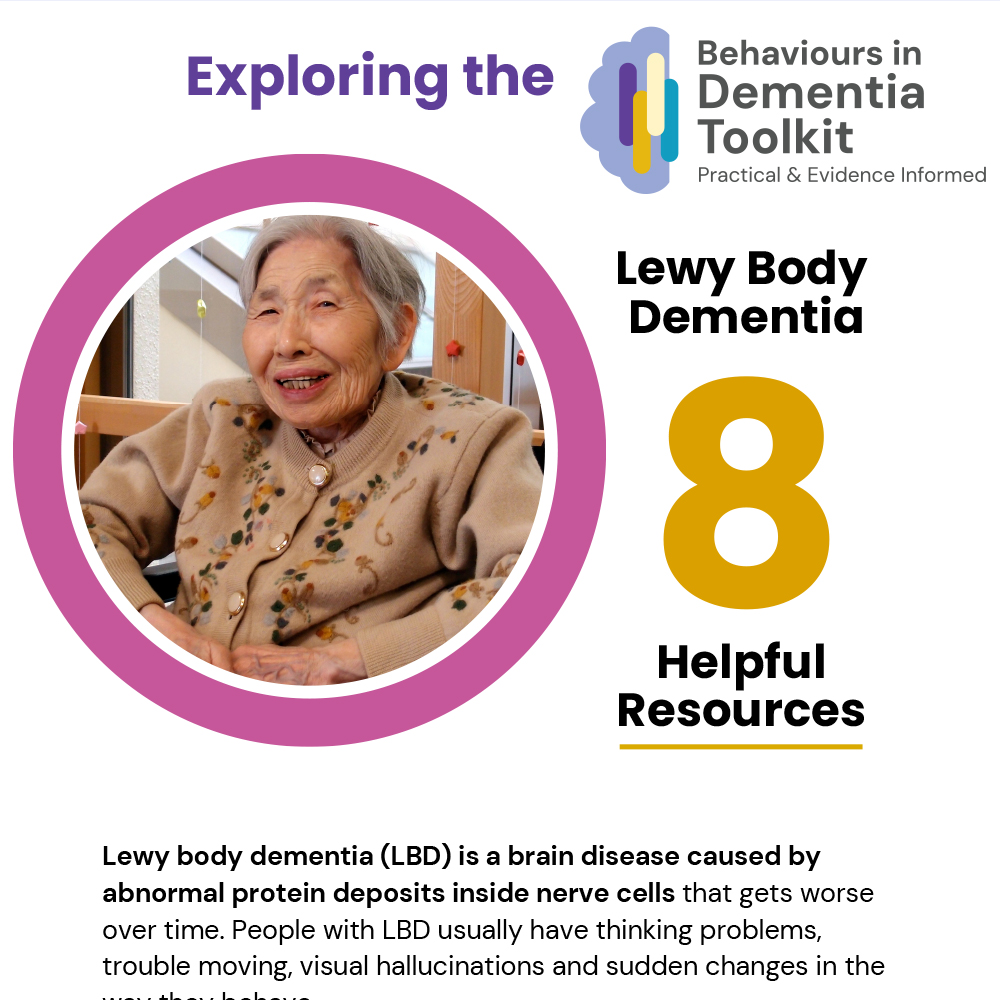
Helpful Resources to Support Lewy Body Dementia
